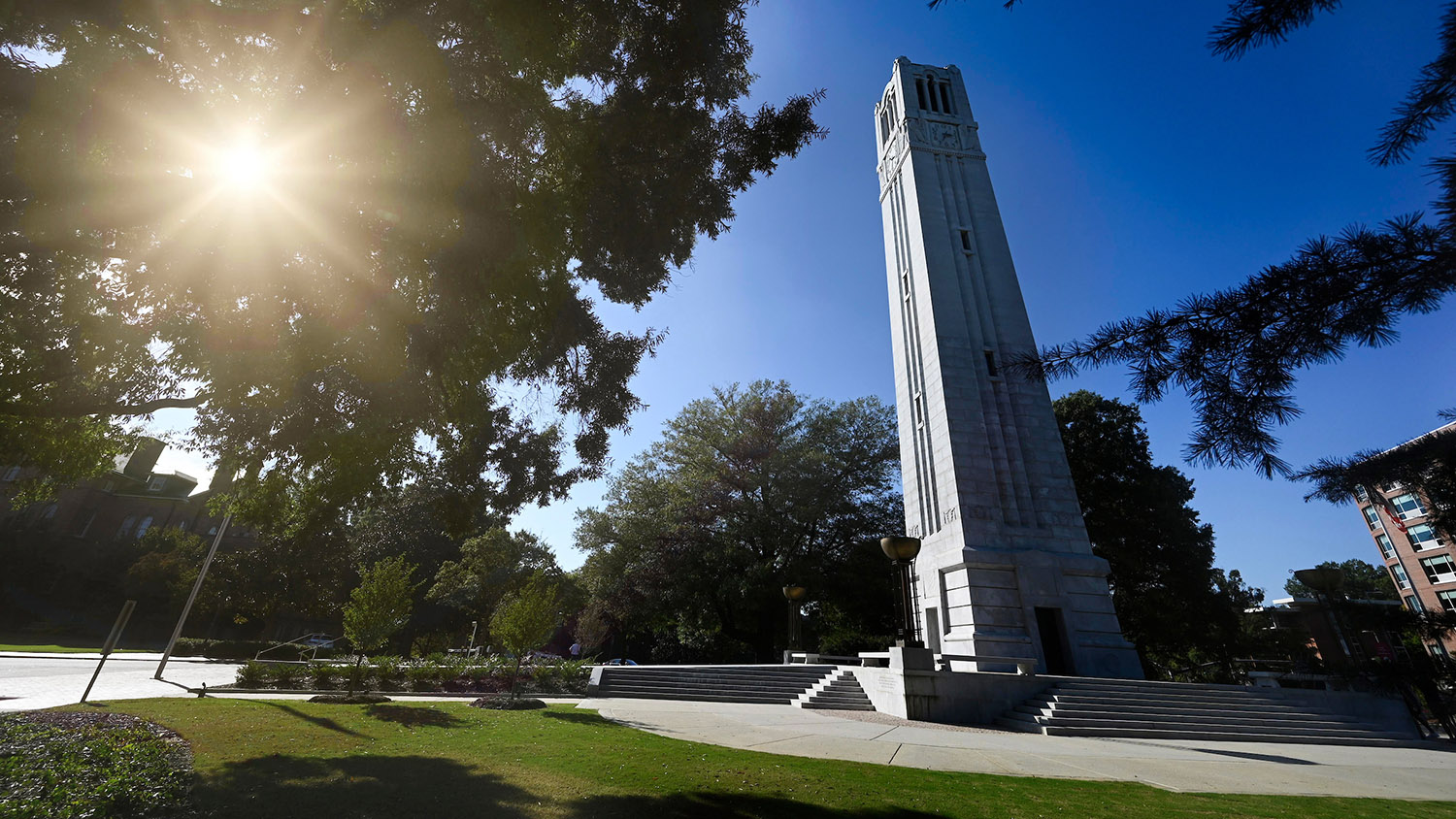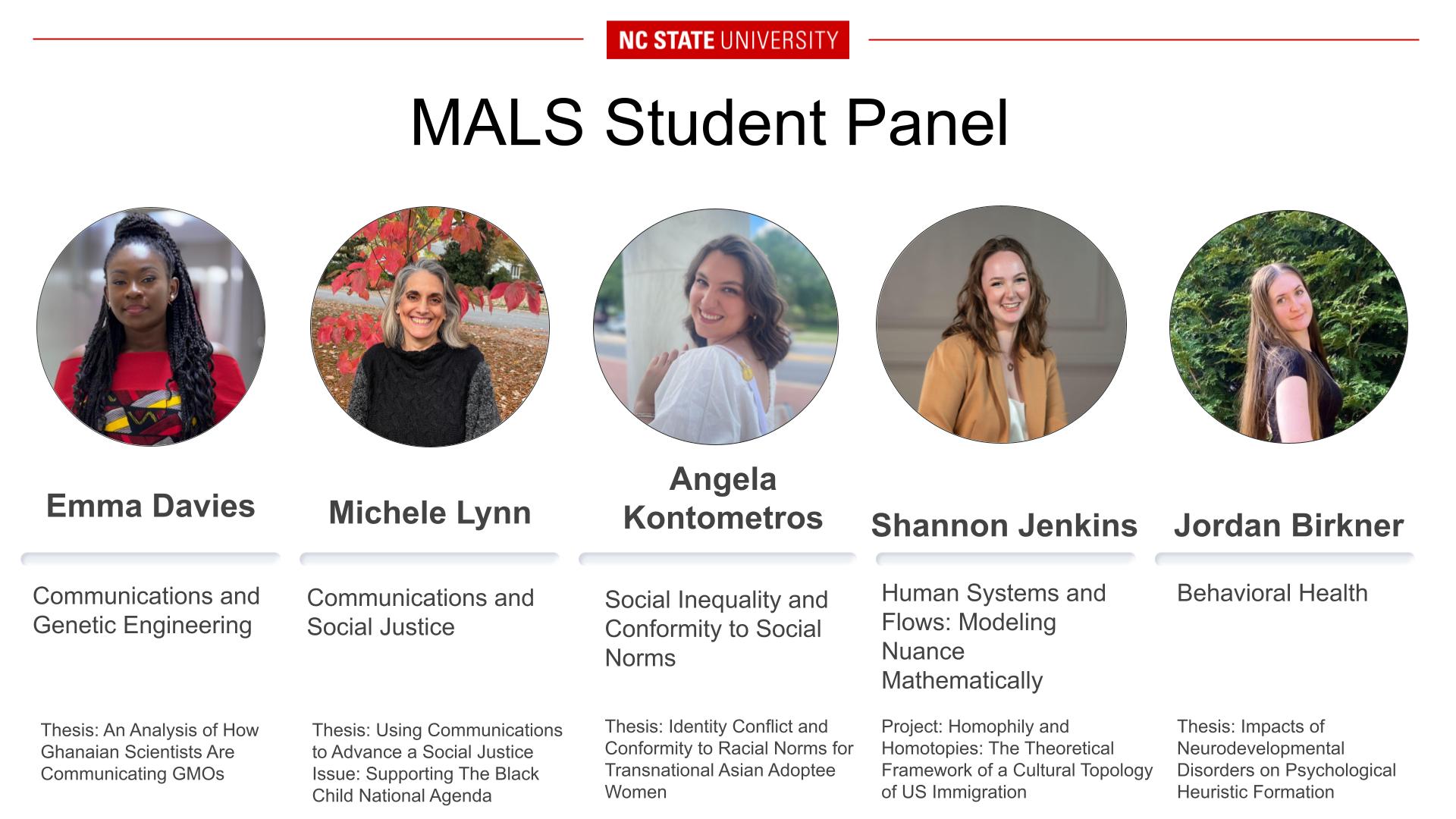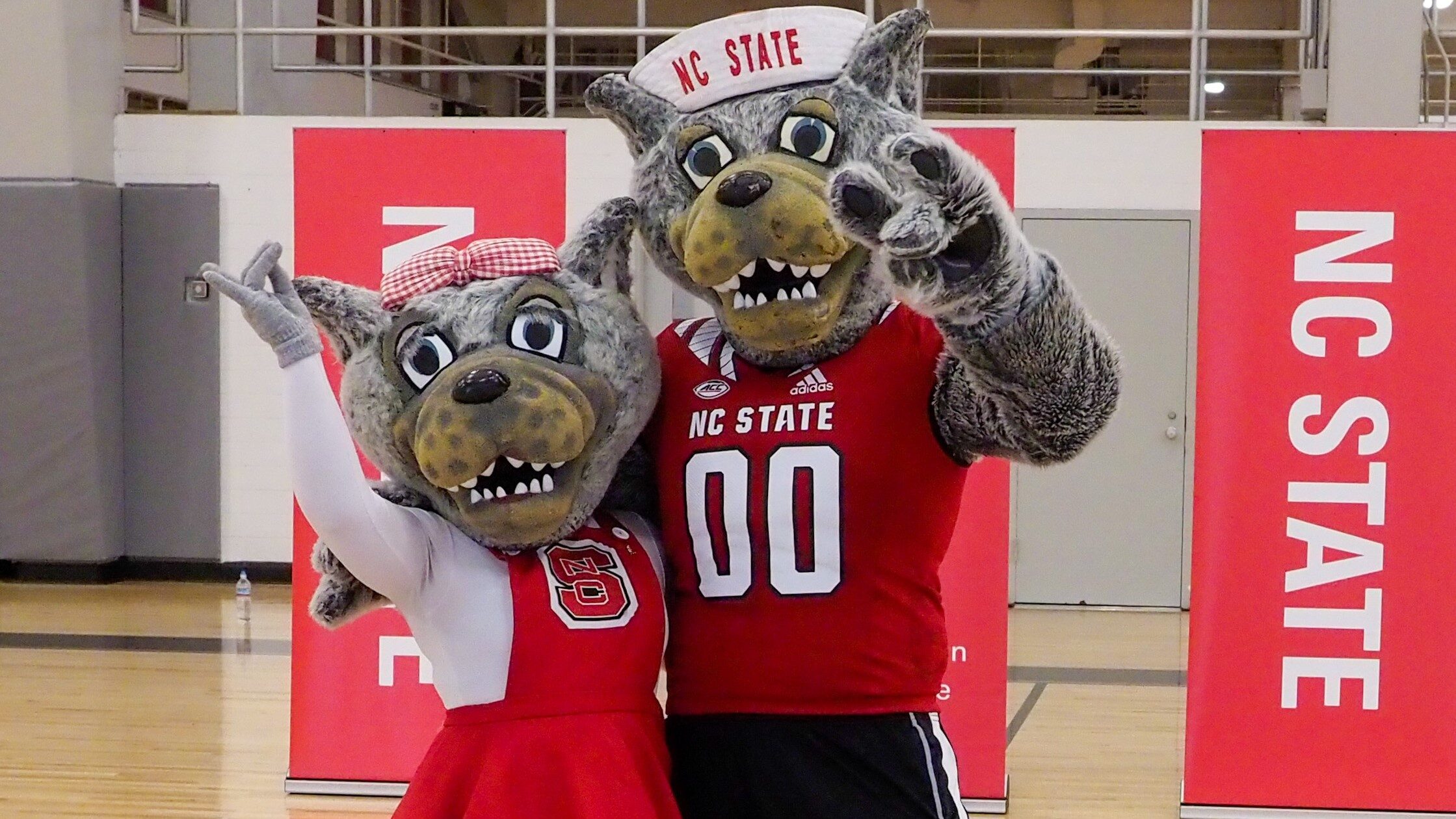The NeuroComputational Ethics Research Group principal investigator, Dr. Veljko Dubljevic, is an associate professor of Philosophy and Science, Technology and Society (STS) here at NC State. His research focuses on the ethics of neuroscience, AI technology, and the cognitive neuroscience of ethics. Dr. Dubljevic collaborates with current MALS students Ronnie Dempsey, Nora Edgren, and MALS Alum Allen Coin.
Allen Coin

Allen Coin is a digital strategist at NC State. His research interests are in the ethical and societal implications of emerging technologies, particularly in artificial intelligence and biotech.
Tell us about yourself! Where are you from? What brought you to NC State?
I’m from Wilmington, NC, and attended NC State for undergrad. I started working at NC State almost six years ago now. I knew I wanted to pursue further education, but wanted to continue working. When I learned about the MALS program, it seemed like a great fit for me.
What is your academic and/or professional background?
I graduated from NC State in 2012 with dual bachelor’s degrees in English and Philosophy. I got a job in digital marketing at a software company, during which time I learned how to code and eventually was hired at NC State as a web developer. I currently work for NC State’s central marketing department in a digital strategy role.
What is your area of study/research? In what ways is this work interdisciplinary?
I have just completed my MALS studies where my concentration title was Science, Technology, and Society. I have a particular interest in the ethical and social implications of emerging technologies like AI and brain-computer (BCI) interfaces. BCI and AI are rapidly advancing technologies with the potential to impact individuals and society in different, unexpected ways. The study of the ethical and social implications of emerging technologies involves an interdisciplinary approach drawing from philosophy, engineering, psychology, sociology, media studies, history, and more in order to look at these technologies through different lenses in order to understand their potential effects. For instance, psychological studies on BCI users have reported some concerning findings about the psychological effects BCI has on users of the technology that are relevant to ethicists, policymakers, and engineers focusing on this technology.
Why did you decide to explore this area of research?
I took a class with Dr. Veljko Dubljević during my first semester of the MALS program called “The Ethical, Social, and Legal Implications of Human Enhancement Technologies”. I found the subject matter fascinating, and ended up working with Dr. Dubljević on a number of research projects and joined the NeuroComputational Ethics Research Group.
How has MALS enhanced your research experience?
During my time in the MALS program I have published 4 peer-reviewed academic papers and a book chapter, with more in-progress, and have presented at 5 conferences. I am also co-editing an upcoming volume on the ethics of BCI with Dr. Dubljević. This has all required learning how to conduct and actually conducting a number of different research projects using conceptual, qualitative, and quantitative research methodologies. I’m also starting to earn a bit of a reputation as an expert in the field, having been recently referred to as an “expert” in an article published in The Daily Mail (admittedly not a very credible publication, which makes it kind of funny to me). As a result of my experience in the MALS program, I feel confident I’d be well prepared to pursue a PhD and a career in academic research if I wanted to go down that route, but I’m not sure what the future holds for me.
Nora Edgren

Nora is the group coordinator for the NeuroComputational Ethics Research Group. Her current research interests include science communication and misinformation and the intersections between science, technology, and society.
Tell us about yourself! Where are you from? What brought you to NC State?
I’m from Charlotte, North Carolina, and I attended NC State for undergrad. I am currently the group coordinator of the NeuroComputational Ethics Research Group at NC State. When I was looking for a master’s program, I was drawn to the Liberal Studies program because of the flexibility and diverse course offerings. I love that I am able to tailor my program to my interests, and I’ve been able to take courses outside of my comfort zone and learned a lot as a result.
What is your academic and/or professional background?
I earned a B.S. in Animal Science at NC State in 2017, and then I worked as a veterinary assistant for two years. This experience led to my interest in science communication and the ‘humanities side of science,’ as much of my daily job involved communicating scientific concepts and ideas to the public.
What is your area of study/research? In what ways is this work interdisciplinary?
I am studying science, society, and communication, and my research involves multiple disciplines, including writing, philosophy, communication, and policy. I am focused on the relationship between artificial intelligence and society, as it has affected and will continue to greatly affect society in many different ways.
Why did you decide to explore this area of research?
I have been interested in the ways that AI and algorithms (either in media or autonomous vehicles, etc.) interact with our daily lives and how this technology will impact society in the coming decades. Currently, I am working on a project that explores the directions for future research in AI, which surveys experts both in computer science/engineering and the humanities. I have also been working as the managing editor for a special issue of AI & Society, which has exposed me to a wide variety of topics in AI, from legal, social, and ethical issues to everything in between.
How has MALS enhanced your research experience?
I took Dr. Dubljević’s MALS seminar on human enhancement last fall, and I learned to be a better critical thinker regarding scientific research in that class. Then, I joined the NeuroComputational Ethics Group, and I don’t think that I would’ve found this experience had I not taken this seminar. In working with Allen and Ronnie along with the other members of the group, I feel that MALS allows us to utilize our diverse backgrounds and expertise to explore new and interesting ideas.
Ronnie Dempsey

Ronnie Dempsey is a full-time graduate student in the Master of Arts in Liberal Studies program at NC State University and is also pursuing a graduate certificate in Public Policy Analysis.
Tell us about yourself!
I retired from the United States Army in 2019 with over twenty years of serving in the Special Operations community as a Special Forces Green Beret. While serving in the military and post-retirement, I earned a B.S. in Interdisciplinary Studies with a minor in Psychology. My military service sparked my research interests to understand the root causes of violence with the pragmatic goal of developing solutions best able to address its consequences. I currently work as a training and development manager for a relatively large commercial construction company in the Raleigh, Durham, and Chapel Hill areas of North Carolina, performing workforce development to meet the challenging needs of the demanding and evolving construction industry.
What brought you to NC State?
I applied to NC State University because of the diversity of the students, faculty, and staff, and the vast research opportunities available for graduate students. Furthermore, the MALS program offered a way to design a comprehensive program with academic rigor to meet my educational needs. Through my graduate work at NC State University, I narrowed my research scope to studying ethical decision-making in law enforcement. In many ways, it is an interdisciplinary endeavor, bringing the fields of philosophy, psychology, sociology, and public policy together to analyze a highly relevant and controversial topic in the United States.
How has MALS enhanced your research experience?
The MALS program has had a significant impact on my research experience. First, the MALS seminars have been profoundly impactful in helping to develop my academic writing and research skills. I had to relearn how to write academically from the ground up because my many years in military service ingrained a specific, technical writing style in me. Furthermore, the MLS 501, Seminar in Liberal Studies: Ethical, Legal and Social Implications of Human Enhancement Technologies, presented by Dr. Veljko Dubljević, introduced me to the NeuroComputational Ethics Research Group at NC State University. The research conducted by Dr. Dubljević and the team members on the ethics of neuroscience and AI technology and cognitive neuroscience of Ethics has personally enhanced my research experience and skills. Finally, I would be remiss if I did not mention the collaborative nature of taking several courses, each from a different discipline, providing the critical ingredients for gaining insight into my research area and project. Lastly, it is still up in the air, but the MALS program has rekindled my curiosity in potentially applying for a doctoral program.
- Categories:



